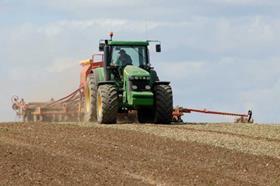
The heads of Red Tractor and the NFU have hit back in a growing war of words between British and American farmers ahead of a possible US-UK trade deal.
Writing in The Daily Telegraph last week, US ambassador Woody Johnson lambasted what he described as a 'smear campaign' against US farming, adding that the EU's approach to food production belonged in a 'Museum of Agriculture.'
That in turn drew an angry response from Jim Moseley, chief executive of Red Tractor Assurance, who described the UK's food standards as 'under threat from the commercial appetites of the United States food lobby'.
While much of the row has centred around the use of chlorine washes on chicken, concerns have been expressed about a wide variety of agricultural produce and the way in which they are produced. 'We urge the government not to sacrifice legislation which prevents these sort of products from being sold in the UK,' Moseley added. 'British people deserve better than having their world-leading food standards sold out from underneath them.
“Our research shows that shoppers look for food that has been produced to the highest standards of food safety, animal welfare and traceability. A deal that allows illegal products to be brought into the UK lets down the British public and undermines all the investment and efforts of British farmers. This cannot be the right thing to do.”
NFU president Minette Batters also waded into the debate following the publication of the US's negotiating objectives for a potential UK-US trade deal. “It comes as no surprise that the US is seeking comprehensive access to the UK’s agricultural market and is pushing for a trade deal that accepts US production standards and practices,' she said.
“The NFU has been very clear on this point. It is imperative that any future trade deals, including a possible deal with the US, do not allow the imports of food produced to lower standards than those required of British farmers.
“British people value and demand the high standards of animal welfare, environmental protection and food safety that our own farmers adhere to. These world-leading standards must not be sacrificed in the pursuit of reaching rushed trade deals. We should not accept trade deals which allow food to be imported into this country produced in ways which would be illegal here.
“Last week at the NFU Conference, the NFU laid out its proposals for a high-level commission of food and farming experts that will make clear recommendations on our future food trade policy. It is vital that this is established as a priority.'






No comments yet